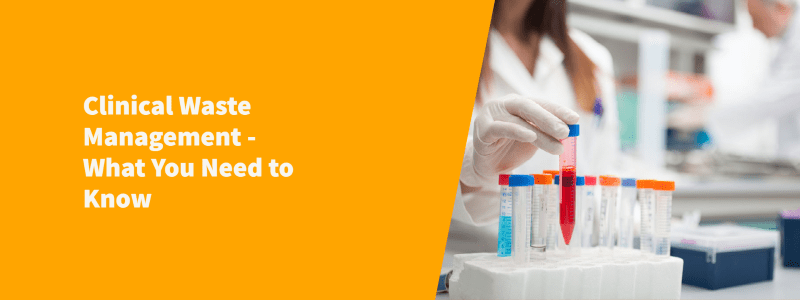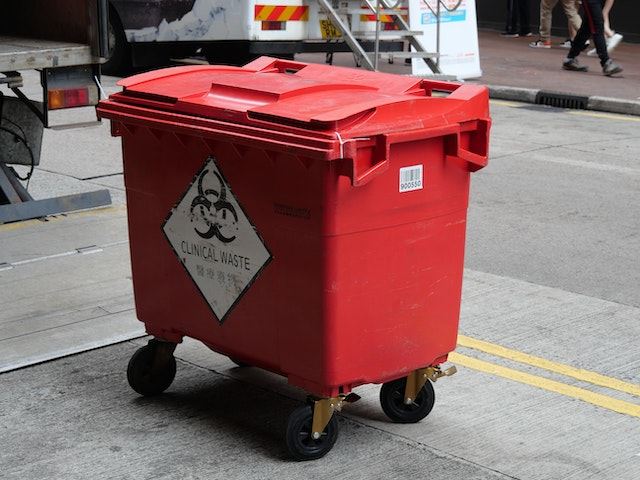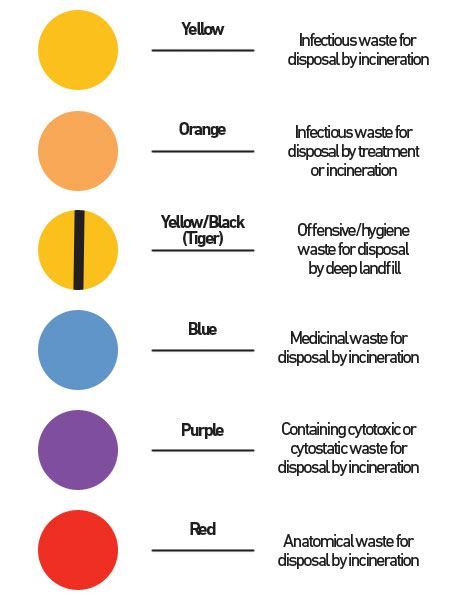Whilst there are much more exciting sides to any business, how you manage and dispose of your clinical waste is something that must be done correctly. You need to ensure you do it in accordance with the appropriate legislation. It isn’t just hefty fines and legal action that should push you towards correctly managing your clinical waste. It should also the heavy risks associated with a negligent waste plan. Regulations are in place to prevent severe harm being caused to the environment, your staff, the public. But what is clinical waste?
What is Clinical Waste?
This type of waste isn’t something that every business produces. It’s often associated with the healthcare sector. It is defined as being ‘any waste which consists wholly or partially of human or animal tissue, blood or other bodily fluids.’
This can include:
- Excretions
- Drugs
- Swabs
- Dressings
- Syringes
- Needles
Any waste arising from medical, nursing, dental, veterinary, pharmaceutical or a practice in a similar line of work is usually classed as clinical waste. Clinical, hazardous and offensive waste are often confused and grouped together when it comes to defining different waste types. Unlike clinical, hazardous waste is defined as being harmful to humans or to the environment. Offensive waste is any waste which may be considered unpleasant, whether this is due to its smell or appearance.
Clinical Waste Fine REVEALED
Correct disposal is a legal requirement and the punishment for non-compliance isn’t small change. Fines can be up to £50,000 and even prosecuted for repeat offenses. For small businesses especially, this isn’t something you want to have to pay for. Employing a service provider that can legally dispose of your clinical waste are well worth their weight in gold.
Click Here to Call for an Instant Clinical Waste Quote
Which Regulations Monitor Clinical Waste?
Part of dealing with your clinical waste is knowing which laws and regulations you need to follow. The main piece of legislation this sits under is the Environmental Protection Act 1990. In this act, it states that it is “unlawful to deposit, recover or dispose of controlled waste without a waste management license, or in any way that causes pollution of the environment or harm to human health”
With this type of waste being potentially dangerous, the handling and management of it must comply with the following regulations:
- The Environmental Protection Act 1990
- The Hazardous Waste Regulations 2005
- The Carriage of Dangerous Goods Regulations
- Statutory Duty of Care Regulations (see below)
The responsibility for safe and proper clinical waste disposal lies with the producer of the waste. A Duty of Care note documents the transfer of waste and records that you, the producer, have done your part in handing your waste over to a carrier in the proper way. Any business disposing of clinical waste must use a registered carrier who will take their waste away to a licensed waste disposal site.
Failure to do so could result in fines, shutting down of premises of even jail time.
Definitions of Types of Clinical Waste
Sharps
It is important that this waste is segregated properly at the point of production. Mixing different streams of waste is illegal, according to laws in England and Wales. In Scotland and Northern Ireland separation is best practise for businesses. In doing this, you ensures those who come into contact with it are aware of its nature.
Sharps waste includes any device or object that can be used to puncture or lacerate the skin – this can be needles, syringes, injection devices, blades and more.
Infectious Waste
Any waste contaminated with blood and its by-products, such as discarded diagnostic samples containing blood and bodily fluids, contaminated swabs/bandages and contaminated equipment.
Offensive Waste
This is non-infectious waste, which may be unpleasant and cause offense to anyone who comes into contact with it such as hygiene waste, sanitary protection, nappies and incontinence pads etc.
Medical Waste
This is the general name for all waste generated at health care facilities. This can include hospitals, clinics, dental practices, blood bands and veterinary clinics.
Cytotoxic/cytostatic
This refers to waste that contains cytotoxic or cytostatic medicines, and can include hormonal preparations, anti-viral drugs, immunosuppressant’s and some antibiotics.
Anatomical
This refers to human tissue or blood, which can include heavily soaked materials like swabs and dressing.
Call Today for an Instant Clinical Waste Quote
What are the Different Bag/Container Types?
There are many different colours of bag, according to the national colour coding system, that if used correctly ensure the safe and proper disposal of clinical waste.
It can be confusing understanding these regulations. Luckily Direct365 as experts in the field. Our years of experience and knowledgeable staff can help ensure you get the right service. Get an instant quote on your waste today!



